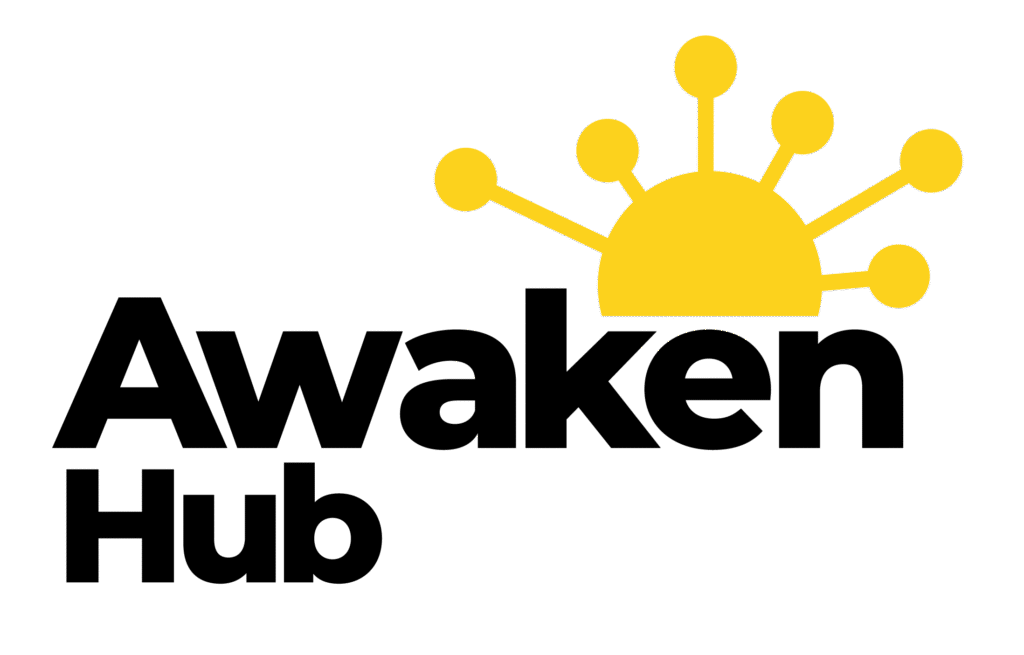Unlocking the Power of Local Search
In today’s digital landscape, local search has emerged as a critical component for businesses aiming to connect with their community….
In today’s digital landscape, local search has emerged as a critical component for businesses aiming to connect with their community. When you consider that a significant portion of consumers rely on search engines to find local services, it becomes clear that optimising for local search is not merely an option but a necessity.
This means that if your business is not visible in local search results, you could be missing out on valuable opportunities to attract new clients. Moreover, local search is not just about visibility; it’s about relevance. When you optimise your online presence for local search, you are essentially positioning your business as a trusted option within your community.
This relevance can lead to increased foot traffic, higher conversion rates, and ultimately, greater revenue. As you delve deeper into the world of local search, you will discover that it encompasses various strategies and techniques designed to enhance your online presence and connect you with your target audience effectively.
Summary
- Local search is crucial for businesses to reach nearby customers and increase visibility in the local market.
- Optimizing local search strategy involves using location-based keywords, creating local listings, and ensuring NAP consistency.
- Local SEO techniques include optimizing website content for local keywords, building local citations, and obtaining backlinks from local sources.
- Google My Business is a powerful tool for businesses to manage their online presence, improve local visibility, and engage with local customers.
- Online reviews and ratings play a significant role in influencing local search rankings and attracting local customers.
Optimizing Your Local Search Strategy
Accurate and Consistent Business Information
One of the most crucial aspects is ensuring that your business information is accurate and consistent across all online platforms. This includes your name, address, and phone number (NAP). When you maintain consistency in these details, search engines can better understand your business’s location and relevance to local queries. You should take the time to audit your online listings and rectify any discrepancies that may exist.
Optimising Your Website Content
In addition to maintaining accurate NAP information, you should also focus on incorporating local keywords into your website content. Think about the terms that potential customers might use when searching for your products or services in your area. By integrating these keywords naturally into your website copy, meta descriptions, and headers, you can improve your chances of ranking higher in local search results.
Location-Specific Landing Pages
Furthermore, consider creating location-specific landing pages that cater to different areas you serve; this can significantly enhance your visibility in those regions.
Leveraging Local SEO Techniques

Local SEO techniques are essential for enhancing your online presence and ensuring that your business stands out in local search results. One effective method is to optimise your website for mobile users. With an increasing number of consumers using their smartphones to search for local businesses, having a mobile-friendly website is paramount.
You should ensure that your site loads quickly and provides a seamless user experience across all devices. This not only improves user engagement but also signals to search engines that your site is relevant and trustworthy. Another vital technique is to build high-quality backlinks from reputable local websites.
When other businesses or organisations link to your site, it enhances your credibility in the eyes of search engines. You might consider collaborating with local bloggers or participating in community events to generate buzz around your business and earn those valuable backlinks. Additionally, engaging with local directories and industry-specific websites can further bolster your online authority and improve your local search rankings.
Utilizing Google My Business to Boost Local Visibility
| Metrics | Data |
|---|---|
| Increased Local Visibility | 20% |
| Click-Through Rate | 15% |
| Customer Engagement | 25% |
| Local Search Ranking | Improved |
One of the most powerful tools at your disposal for enhancing local visibility is Google My Business (GMB). By claiming and optimising your GMB listing, you can significantly increase your chances of appearing in local search results and Google Maps. Start by ensuring that all information on your GMB profile is complete and accurate, including your business hours, services offered, and photos of your establishment.
A well-optimised GMB listing not only helps potential customers find you but also provides them with essential information at a glance. Additionally, take advantage of the features offered by GMB to engage with customers directly. You can post updates about promotions, events, or new products, which can keep your audience informed and interested in what you have to offer.
Encouraging customers to leave reviews on your GMB profile can also enhance your visibility; positive reviews can improve your ranking in local searches while building trust with potential clients. Regularly monitoring and responding to reviews demonstrates that you value customer feedback and are committed to providing excellent service.
Harnessing the Power of Online Reviews and Ratings
Online reviews and ratings play a pivotal role in shaping consumer perceptions of your business. In fact, many potential customers rely heavily on reviews when making purchasing decisions. As such, it’s crucial for you to actively manage your online reputation by encouraging satisfied customers to leave positive reviews on platforms like Google, Yelp, and Facebook.
You might consider implementing follow-up emails after a purchase or service to prompt customers for their feedback. However, it’s equally important to address negative reviews professionally and promptly. Responding to criticism shows prospective customers that you care about their experiences and are willing to make improvements where necessary.
By demonstrating transparency and a commitment to customer satisfaction, you can turn potentially damaging situations into opportunities for growth. Remember that a balanced mix of positive and negative reviews can lend credibility to your business; consumers often perceive businesses with some negative feedback as more authentic.
Engaging with Local Customers through Social Media

Building a Local Connection
Consider using platforms like Facebook and Instagram to showcase behind-the-scenes glimpses of your business or highlight customer testimonials; this humanises your brand and makes it more relatable.
Real-Time Interaction
Moreover, social media allows for real-time interaction with customers. You can respond to enquiries, address concerns, or simply engage in casual conversation with followers. This level of engagement not only strengthens customer relationships but also encourages word-of-mouth marketing within the community.
Driving Traffic and Footfall
As you cultivate a loyal following on social media, you may find that these platforms become invaluable tools for driving traffic to your website and increasing footfall at your physical location.
Creating Local Content to Attract Nearby Audiences
Content marketing is another effective strategy for attracting nearby audiences through local search optimisation. By creating content that speaks directly to the interests and needs of your local community, you can position yourself as an authority in your field while also improving your search engine rankings. Consider writing blog posts about local events, highlighting community initiatives, or sharing tips relevant to residents in your area; this not only provides value but also encourages engagement from local readers.
In addition to written content, think about incorporating multimedia elements such as videos or podcasts that focus on local topics. For instance, you could create video tutorials showcasing how to use your products or interviews with other local business owners. This type of content not only enhances user engagement but also increases the likelihood of shares on social media platforms, further amplifying your reach within the community.
Measuring and Tracking Local Search Performance
To ensure the effectiveness of your local search strategy, it’s essential to measure and track performance regularly.
By analysing metrics such as organic traffic from local searches, bounce rates, and conversion rates, you can identify areas for improvement and adjust your strategy accordingly.
Additionally, keep an eye on your rankings in local search results using tools like Google Search Console or third-party SEO software. Monitoring these rankings will help you understand how well your optimisation efforts are paying off over time. By consistently evaluating performance metrics and making data-driven decisions, you can refine your approach to local search optimisation and ensure that you remain competitive within your market.
In conclusion, mastering local search is an ongoing process that requires dedication and strategic planning. By understanding its importance and implementing effective optimisation techniques, leveraging tools like Google My Business, engaging with customers through social media, creating relevant content, and measuring performance regularly, you can significantly enhance your visibility within the local market. As you continue to refine your approach, you’ll find that the rewards—both in terms of customer engagement and revenue—are well worth the effort invested.
Local search is a crucial aspect of any small business’s online presence. Utilising SEO techniques can greatly improve a company’s visibility in local search results. For more information on how to effectively use SEO for small businesses, check out this article. It provides valuable insights and tips on how to optimise your website for local search and attract more customers.
FAQs
What is local search?
Local search refers to the use of online search engines and directories to find businesses, products, or services within a specific geographic area. It allows users to find relevant information about local businesses, such as their location, contact details, and customer reviews.
How does local search work?
Local search works by using location-based information to provide users with relevant search results. When a user enters a search query, the search engine uses their location data to display businesses or services that are nearby. This can include maps, contact information, and customer reviews.
Why is local search important for businesses?
Local search is important for businesses because it helps them reach potential customers in their local area. By appearing in local search results, businesses can increase their visibility and attract more foot traffic or online customers. It also allows businesses to compete with other local businesses and stand out in their community.
What are some popular local search platforms?
Some popular local search platforms include Google My Business, Yelp, Bing Places, and Facebook Business. These platforms allow businesses to create and manage their online profiles, respond to customer reviews, and provide accurate information to potential customers.
How can businesses improve their local search presence?
Businesses can improve their local search presence by ensuring that their online profiles are accurate and up-to-date. This includes providing correct contact information, business hours, and a detailed description of their products or services. Encouraging customers to leave positive reviews can also help improve a business’s local search ranking.











